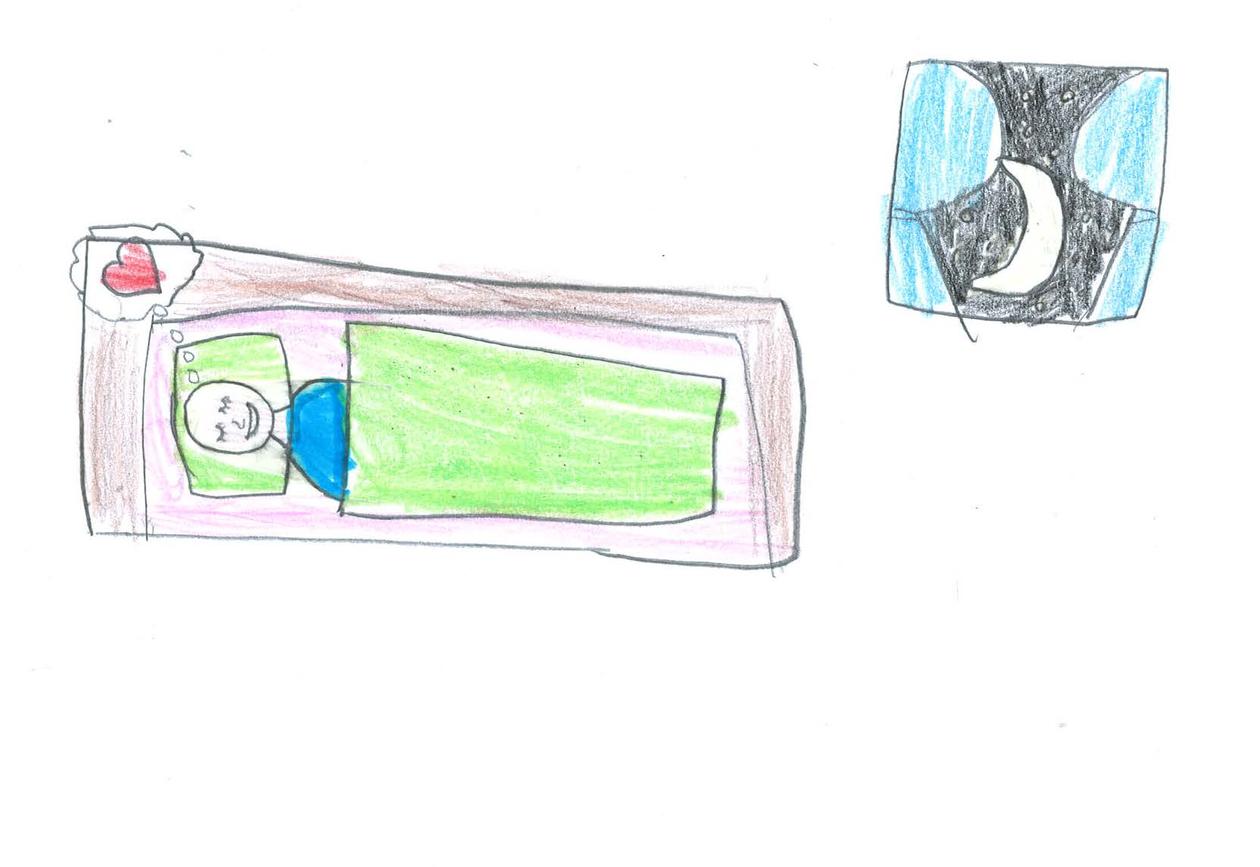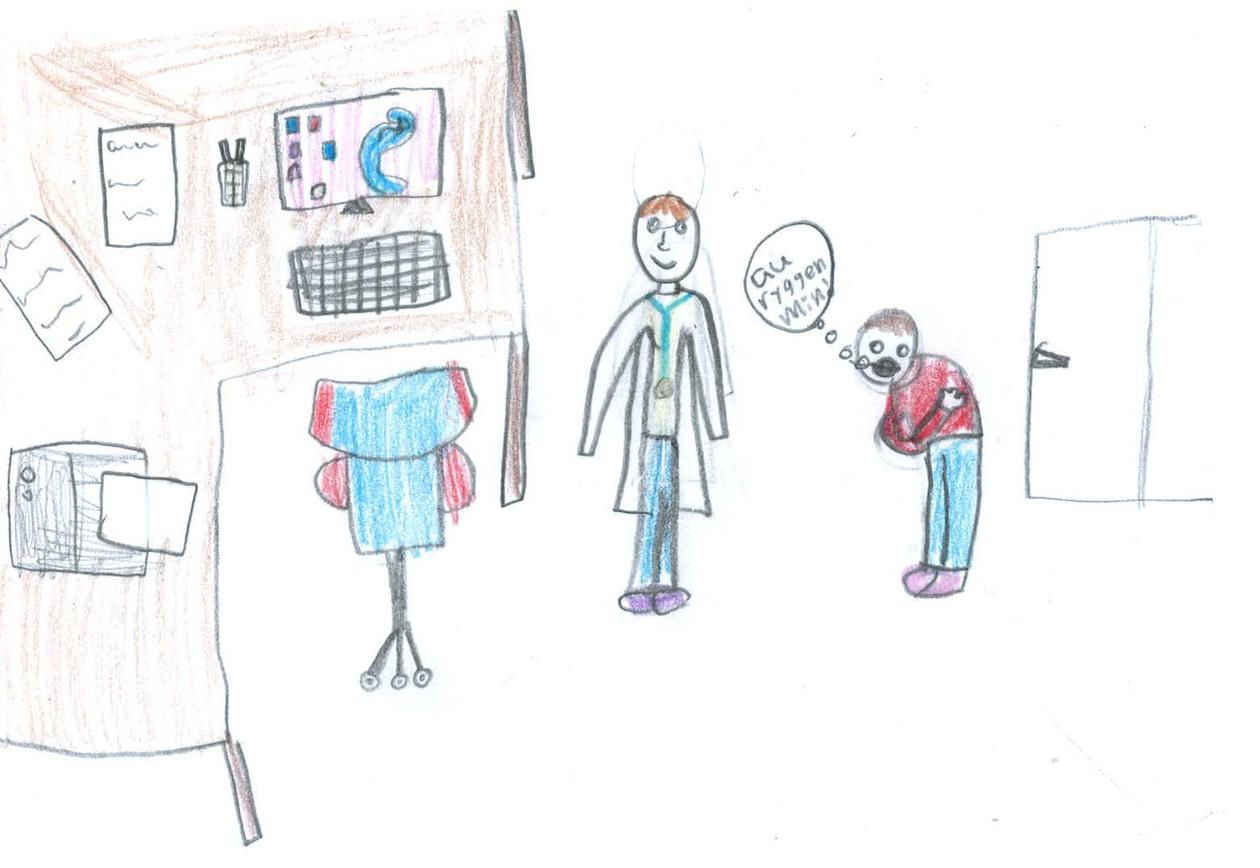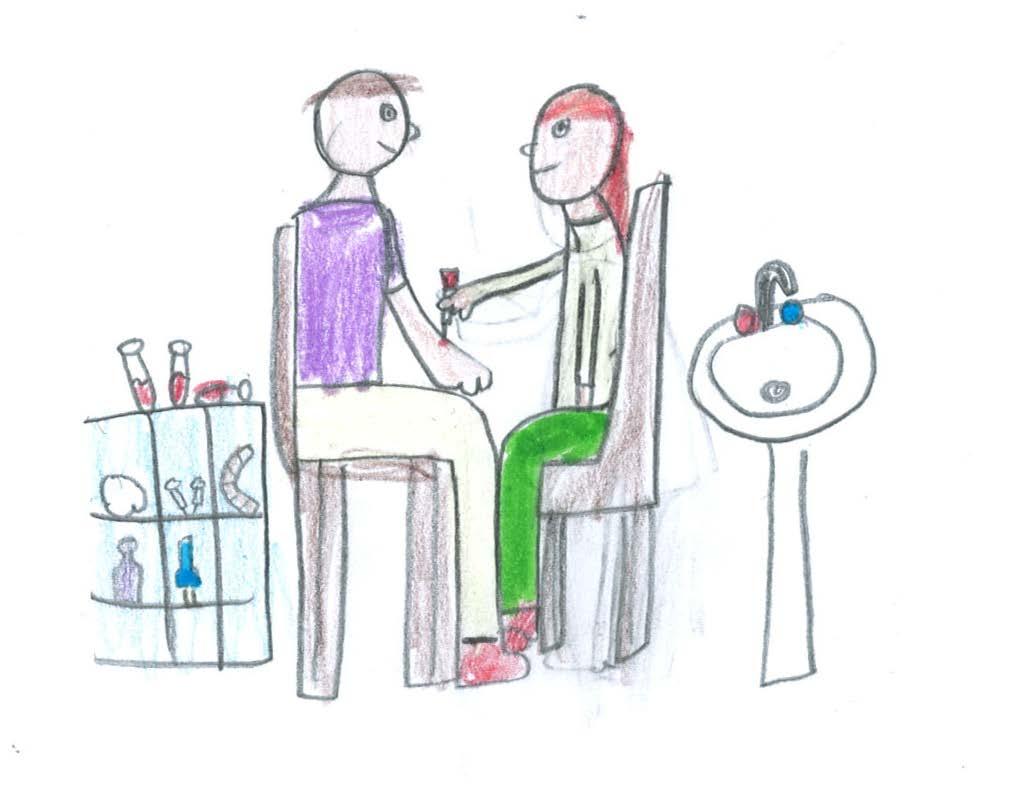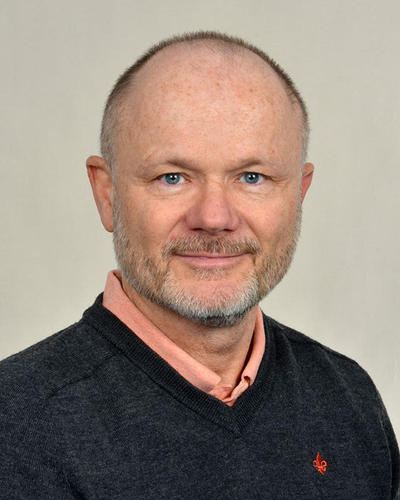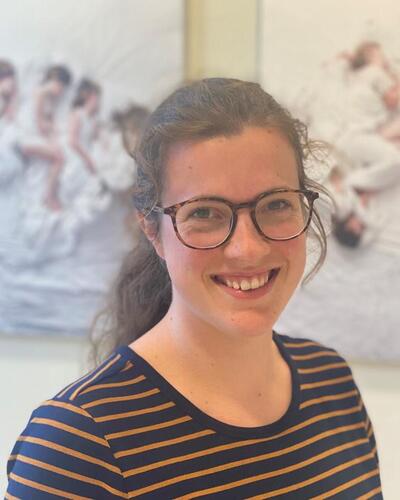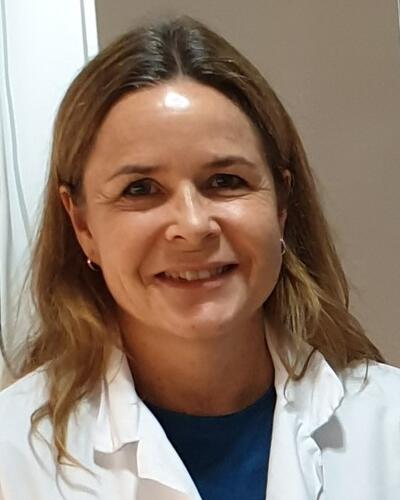SMIL
This research group focuses on sleep, musculoskeletal complaints, infection and laboratory medicine (SMIL), and our aim is to contribute to more practice-based clinical research with relevance for primary care.
Main content
The research group SMIL is affiliated with the Department of Global Public Health and Primary Care with close cooperation with Haukeland University Hospital where several of its members are also employed.
Current projects
ABINOR - Respiratory infections and urinary tract infections in primary care 2006-2025
(Guri Rørtveit, Ingrid Rebnord, Knut Eirik Eliassen, Knut Erik Emberland, Lars Haugom, Leo Larsen)
Respiratory infections and urinary tract infections in primary care is a registry-based project in which we investigate the prevalence of respiratory infections and urinary infections in primary care (GPs and out-of-hours services) over a 10-year period from 2006-2025. We study how the health services have been used, in addition to the use of antibiotics, as well as changes over time.
Sleep problems and infections in general practice
(Bjørn Bjorvatn, Guri Rørtveit, Knut Erik Emberland, Ingrid Rebnord, Siri Waage)
It is well-known that sleep problems frequently occur along with somatic conditions. On the other hand, there is little knowledge about the degree of overlap between the occurrence of sleep problems and infection in primary care. The aim of this cross-sectional study is to map the prevalence of infections and sleep problems, and to investigate the extent to which there is an overlap between these conditions in an unselected group of adult patients who visit their GP. Data collection is planned for 2021. We are also planning on doing a longitudinal study where patients with sleep problems are followed up over time, where the frequency of infection, severity and antibiotic use are mapped.
The use of hypnotics in general practice
(Bjørn Bjorvatn, Ragnhild S. Lundetræ, Linn N. Evanger, Guri Rørtveit)
Many patients in general practice use hypnotics. We will compare two different types of written information materials on patients’ use of hypnotics and sleep. Patients using hypnotics will be recruited through the GPs to answer an online questionnaire on sleep and frequency of sleep medication use. Patients are divided into two groups, of which the groups will be sent different types of materials (randomized controlled trial). Thereafter, patients are followed up after 3-6 months to see if sleep and hypnotic use have changed.
Fatigue in nurses
(Stand Hiestand, Bjørn Bjorvatn, Siri Waage, Ståle Pallesen, Ingeborg Forthun)
Fatigue among nurses is examined using the Survey of Shiftwork, Sleep and Health (SUSSH) in this PhD project. Associations between fatigue and shift work schedules (for example night work) are explored along with other factors including physical and psychological problems and the relationship between fatigue and sleep. In a longitudinal study, factors that may explain what causes fatigue recovery or development are under investigation.
Obstructive sleep apnea: Treatment outcomes, influence on other sleep disorders, and the impact on inflammatory and metabolic biomarkers
(Ragnhild Stokke Lundetræ, Bjørn Bjorvatn)
Obstructive sleep apnea (OSA) is a common sleep disorder with serious health implications, and it often co-occurs with other sleep, somatic and psychiatric disorders. The project uses data from the Register of Sleep Medicine at Haukeland University Hospital and includes patients with suspected OSA. In the present project we aim to address the associations between OSA and comorbid sleep disorders such as parasomnias, and inflammatory and metabolic biomarkers such as CRP, blood lipids and HbA1c in a large, clinical sample of patients with OSA. Moreover, we aim to address the effect of continuous positive airway pressure (CPAP) treatment on symptoms of insomnia in patients with OSA.
Effects of delayed school start times n sleep, mental health, and academic performance among Norwegian adolescents
(Linn N. Evanger, Bjørn Bjorvatn)
Adolescents worldwide sleep less than recommended on school days, partly due to a biologically based delay in the timing for sleep. Internationally, studies indicate that later school start times may improve adolescents’ sleep and daytime functioning. In this study, we will compare whether later school start times on Mondays and Tuesdays are better for Norwegian adolescents’ sleep and daytime functioning, relative to ordinary school start time all weekdays.
The Campylobacter outbreak on Askøy
(Guri Rørtveit, Knut Erik Emberland)
The campylobacter outbreak in Askøy in June 2019 affected around 2,000 people. More than 70 people were hospitalized and two people died, probably related to the outbreak. Askøy municipality has about 29000 inhabitants. Issues explored in this project are the extent of the outbreak, the clinical course of the patients, biological factors and the use of the health services. We use data from questionnaires, hospitals, GPs, out-of-hours services and registries, as well as biological material. Patients are recruited primarily through the municipality's SMS notification, but also via doctors and websites. The questionnaire is answered on a website and data is stored on a secure server at UiB. We follow a cohort of Askøy inhabitants at the start of the outbreak, and after 3, 7 and 12 months.
The Covid-19 outbreak in Norway - Epidemiology, use of the health care services and patient management in the primary health care service – CONOPRI
(Guri Rørtveit, Knut Eirik R Eliassen, Knut Erik Emberland, Ingrid Rebnord, Jonas Dale, Lars Haugom og Leo Larsen)
The Covid-19 pandemic is largely handled in the primary health care service by GPs and the emergency services. The purpose of the project is to investigate how the primary health care service has handled the covid-19 outbreak, patients' use of the health care service during the pandemic and risk factors for serious outcomes among patients during/in the aftermath of the pandemic. The knowledge can be used to prepare for future outbreaks and make patient management more efficient.
PhD research fellow Jonas Dale, with co-supervisor Knut Eirik R Eliassen and colleagues have published data from out-of-hour-services in Norway with the following main findings:
• Almost all emergency departments lacked the necessary equipment to handle infected patients
• 2/3 of emergency departments lacked plans for dealing with pandemic events
• A small number of the emergency rooms had practiced pandemic management
"Although the emergency departments were not prepared for the covid-19 pandemic, they were able to adapt to pandemic work in a short time, and with limited resources"
FAMFIB 2024
(Knut Erik Emberland, Bjørn Bjorvatn, Mette Tollånes, Ingrid Rebnord, Guri Rørtveit, Ragnhild Stokke Lundetræ, Leo Larsen)
Since 2014, the academic general practice environment at the University of Bergen has involved 6th year medical students in research related to their general practice period. These student-involved research projects on general practice topics are named “Felles allmennmedisinsk forskning i Bergen - FAMFIB. The FAMFIB 2024 project consists of three main thematic areas: Obstructive sleep apnea (OSA), respiratory infections and antibiotic use, as well as overdiagnosis.
The purpose of the survey is to investigate, in an unselected group of adult patients who see their GP:
• occurrence and possible underdiagnosis of OSA
• incidence of respiratory tract infections and possibly associated antibiotic treatment in the last three months
• association between OSA and infections
• knowledge of and perceptions about the topics 'overdiagnosis' and 'antibiotic resistance'
• expectation of CRP-use and antibiotic treatment when visiting a doctor for respiratory tract infections
Enhancing medical laboratory quality to ensure that patient test results are reliable and reflect the patient’s health status.
(Gro Gidske, Anne Stavelin, Mette Tollånes and Sverre Sandberg
Laboratory tests are essential in diagnosis and treatment of patients. The doctoral work consists of three articles that focus on improving laboratory quality both before, during and after the testing process.
- Paper I: Hemolysis in blood samples can cause test results to be falsely too high or too low and is the most frequent reason why blood samples are rejected and therefore must be recollected. This study highlights the need for harmonization of how hemolyzed blood samples are handled in hospital laboratories.
- Paper II: In this study, a scoring system for how frequent internal quality control should be analyzed in primary healthcare laboratories was developed. Four factors were considered to significantly impact the frequency: The importance of the analyte in diagnosing and monitoring patients, type of POCT device, user-friendliness, and number of patient samples.
- Paper III: The study highlights the importance of external quality assurance organizations, such as Noklus (www.noklus.no), using patient-like control materials and target values that are traceable to the highest-order reference method in the metrological traceability chain. This is to be able to give feedback to the laboratories about whether instruments measure true values when analyzing patient samples.
Interference of antiphospholipid antibody on various PT-INR methods in warfarin treatment
(Una Ørvim Sølvik)
The purpose of the project is to provide a basis for guidelines for PT-INR monitoring of warfarin therapy in patients with antiphospholipid syndrome. We must, among other things, investigate whether any of the PT-INR analytical methods most commonly used in primary care in Norway are affected by antiphospholipid antibody (APA). It will also be investigated whether any of the analytical methods provides incorrect PT-INR results outside of therapeutic range due to interference by APA, and thus has the potential to cause erroneous warfarin dosing.
Factors associated with chronic kidney disease in patients with diabetes in Norway
(Una Ørvim Sølvik)
The purpose of the study is to estimate the prevalence of chronic kidney disease in patients with type 1 and type 2 diabetes in Norway, and to compare characteristics with patients with diabetes without chronic kidney failure using data from the Norwegian Adult Diabetes Register. We will also estimate the proportion of patients who may benefit from treatment with sodium glucose Co transporter 2 (SGLT2; sodium-glucose cotransporter) inhibitor.
Experience with diagnosis and follow-up of people with type 2 diabetes in Norwegian primary care
(Una Ørvim Sølvik)
We conducted three different focus group interviews with Norwegian GPs, where the themes were identification and follow-up of risk patients and the diagnosis process and follow-up of patients with type 2 diabetes.
Sleep and sleepiness among shift workers in the air ambulance service
(Tine Almenning Flaa)
Shift work involves activity during the biological night, resulting in reduced sleep and increased sleepiness. Numerous studies have established a connection between shift work and adverse effects on health, performance, and safety. Employees in the air ambulance service work seven consecutive night shifts, performing missions at all hours of the day. The tasks performed by these employees are safety-sensitive in nature, where the consequences of reduced performance can have fatal outcomes. Therefore, the purpose of this study is to examine the effects of long working hours and consecutive work periods on the sleep and sleepiness of employees in the air ambulance service. This work is an extension of a PhD project that was completed in 2023.
Completed projects
Restless legs in general practice
(Bjørn Bjorvatn)
The study aimed at identifying the prevalence of restless legs syndrome in Norwegian general practice. The association between restless legs, fatigue and gastrointestinal disorders was also investigated. The study was conducted in an unselected group of adult patients in the waiting room of the GP. The data collection is complete, and the article was recently accepted in the Journal of the Norwegian Medical Association.
Gastroenteritis in primary care
(Guri Rørtveit)
Gastroenteritis in primary care is a registry-based project in which we investigate the prevalence of gastroenteritis in primary care (GPs and out-of-hours services) over a 10-year period from 2006-2015. We study how the health services have been used, in addition to use of antibiotics, as well as changes over time.
The Giardia outbreak in Bergen
(Guri Rørtveit)
The 2004 Giardia outbreak in Bergen affected around 5,000 people. A group of primary care researchers, infectious medicine practitioners and statisticians have worked together over the years to investigate short-term and long-term complications. Particular focus has been on post-infectious irritable bowel syndrome and chronic fatigue. Several doctoral projects have been completed based on this project, and one is still ongoing.
Annual reports
Annual report for 2023 (in Norwegian)
Annual report for 2022 (in Norwegian)
Annual report for 2021 (in Norwegian)
Annual report for 2020 (in Norwegian)
Annual report for 2019 (in Norwegian)
PhDs
2023
Tine Almenning Flaa: Sleep and sleepiness among shift workers in the air ambulance service
2022
Gunhild Hunskår: Senfølger etter Giardia-epidemien i Bergen
2021
Tone Bukve: External quality assurance of point-of-care testing: Participant performance and commutability of control material
2021
Knut Erik Emberland: Gastroenteritis in Norwegian primary care - Time trends and a large waterborne outbreak
2020
Hogne Vikanes Buchvold: «Shift Work: Weight change and lifestyle factors»
Mari Knapstad: «A clinical study of patients with concurrent dizziness and neck pain»
The Norwegian Primary Care Research Network - PraksisNett
The Norwegian Primary Care Research Network (in Norwegian: PraksisNett) is a research infrastructure that provides a foundation for enhancing the quality of primary care research in Norway. The infrastructure facilitates recruitment of primary care patients to clinical studies and increases the power and predictability of these studies.
The Norwegian PCRN will motivate researchers to conduct clinical studies by facilitating reliable and secure access to GPs, patients and clinical data. It is organised as a two-layer interdependent model: A human, resource-based infrastructure consisting of a coordinating node and four interlinked regional research networks with associated clinical practices; and an advanced, secure IT infrastructure connecting the coordinating node, the regional research networks and the clinical practices, and providing users with individual access for data extraction and processing.

